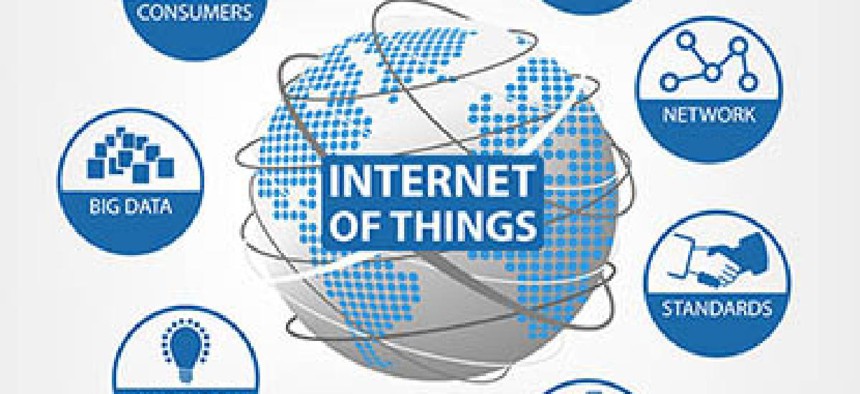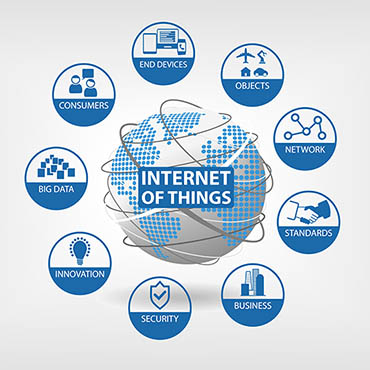Regulators mull what IOT means for spectrum

Federal officials cautioned of the dangers of hampering innovation with restrictive spectrum allocation.

The explosive growth in connected devices is fueling demand for broadband quality mobile spectrum. But spectrum is a finite resource, managed and allocated by the federal government. While federal regulators are cautioning against restrictive spectrum allocations or internet of things regulations, there's some debate on how to pivot spectrum policy to embrace a future in which household appliances, cars, apparel and even livestock could have IP addresses.
Derek Khlopin, senior advisor for spectrum at the National Telecommunications and Information Administration, said that existing spectrum resources could represent "a limit" on the internet of things.
Government speakers at an IoT event at the Washington, D.C. law firm Hogan Lovells said that part of the answer is to develop innovative ways to make current spectrum holdings more effective and efficient.
Renee Gregory, senior policy advisor at the White House Office of Science and Technology Policy, said that commercial and federal demand for spectrum use "is always going up, and we're not going to meet demand by making more bands, so we need to make better use of what's out there today." While some have painted the situation as a spectrum crunch, Gregory said things may not be so dire. Increased efficiency is certainly possible, she said, and bands of spectrum previously considered unusable "now are the primary ones for 5G," which provides broadband-level connectivity.
The Department of Defense has been called on to share its spectrum in the past, and has voiced reluctance to relinquish more to accommodate commercial use, out of fear of compromising defense systems and national security.
The Federal Communications Commission has been busy reallocating spectrum from legacy users via incentive auctions. David Grossman, the senior legal advisor to FCC Commissioner Mignon Clyburn, said such auctions could mitigate spectrum shortages.
The demand for this limited resource, meanwhile, shows no signs of abating. Grossman said that "global data traffic is expected to increase eight-fold by 2020" as the number of connected IOT devices jumps from its current number to the 40-50 billion range.
However NTIA's Khlopin said he maintained "hesitancy" about whether future, similar auctions of spectrum would be good public policy.
Gregory added that finding a balance between preserving government operation requirements and sharing spectrum for IOT consumers is "the way of the future."
"Everyone understands that spectrum is a scarce resource," Gregory said. "I think we have made huge strides in collaborative discussions that have been ongoing between commercial spectrum users as well as the federal agencies" to find a balance that can advance innovation and benefit all sides.
In terms of regulating the use of spectrum and the IoT, all three government officials agreed that hasty regulations could restrict innovation and said maintaining flexibility is the optimal route.
"One of the things we are not strong in in the government is technical expertise," said Gregory. The government, he said, should not "'be telling [engineers] and your companies how to make your products."


